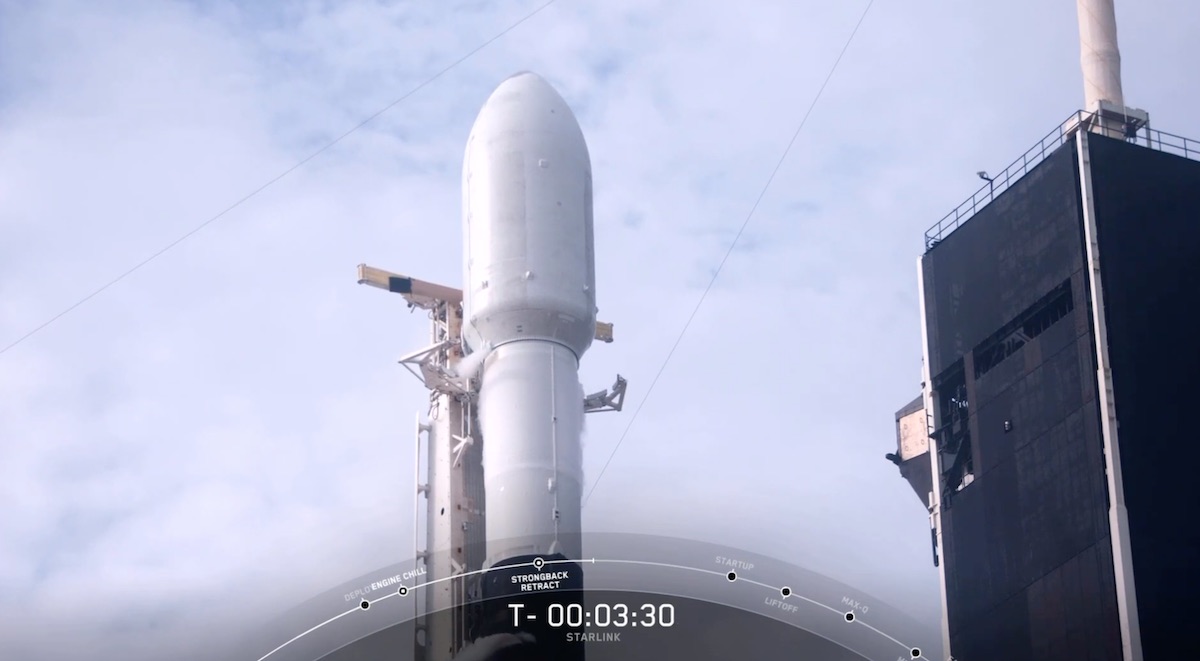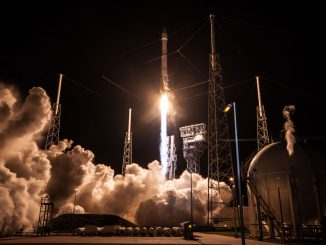
An unexpected reading from a ground sensor prompted SpaceX to scrub the planned launch of a Falcon 9 rocket Thursday with 60 more Starlink broadband satellites.
It was the second last-minute abort of a rocket launch on Florida’s Space Coast in less than 10 hours, following a hold Wednesday night just before engines ignited on a United Launch Alliance Delta 4-Heavy rocket that was supposed to ferry a U.S. government spy satellite into orbit.
The back-to-back aborts thwarted plans to launch two satellite delivery missions from separate pads at Cape Canaveral Air Force Station and the Kennedy Space Center. The dual launches would have set a mark for the shortest span between two orbital-class flights from the Space Coast since 1966.
Instead, ULA and SpaceX missions that had already faced previous launch delays were grounded again.
The Delta 4-Heavy’s stymied countdown Wednesday night marked the second abort for the rocket in the final 10 seconds before liftoff. A launch attempt Aug. 29 was halted at T-minus 3 seconds, after ignition of one of the rocket’s three RS-68A main engines.
Here’s a replay of the final seconds of the aborted Delta 4-Heavy countdown tonight.
This is the second abort inside T-minus 10 seconds for this mission.
Continuing coverage: https://t.co/gZCB2vhVYZ pic.twitter.com/Gt7Wf4Cgzb
— Spaceflight Now (@SpaceflightNow) October 1, 2020
ULA, a 50-50 joint venture between Boeing and Lockheed Martin, traced the problem uncovered Aug. 29 to a pressure regulator at the Delta 4’s launch pad at Cape Canaveral Air Force Station
The company subsequently delayed the Delta 4-Heavy launch from Saturday, Sept. 26, to probe a concern with the swing arms at launch pad 37B. A launch attempt Tuesday was scrubbed after teams discovered a hydraulic leak in the ground system responsible for moving the launch pad’s mobile gantry away from the rocket and into position for liftoff.
Read our earlier story for details on the Delta 4-Heavy delays.
After the late-night Delta 4 launch abort, ULA drained cryogenic propellants from the rocket and began investigating what caused the countdown’s automated sequencer to command a hold just 7 seconds before liftoff. ULA officials did not immediately set a new target launch date, but the mission is likely to be grounded at least several days.
SpaceX pressed on with plans to launch a Falcon 9 rocket Thursday at 9:17 a.m. EDT (1317 GMT) from pad 39A at the Kennedy Space Center, a few miles north of the Delta 4 launch complex.
The Falcon 9 was loaded with kerosene and liquid oxygen propellants, and the countdown ticked through standard pre-launch milestones until the clock stopped at T-minus 18 seconds. The Falcon 9 mission with the 60 Starlink satellites has an instantaneous launch opportunity each day, so the hold automatically meant the rocket could not take off Thursday.
“Standing down from today’s Starlink mission due to an out of family ground system sensor reading,” SpaceX tweeted. The company said it “will announce a new target launch date once confirmed on the range.”
SpaceX has scrubbed today’s Falcon 9 launch attempt in Florida after an abort due to an unexpected ground sensor reading.
SpaceX hasn’t set a new target launch date for the mission to deliver 60 more Starlink broadband satellites into orbit.https://t.co/I0aLt9X1Jq pic.twitter.com/Zv0Gr0gRS6
— Spaceflight Now (@SpaceflightNow) October 1, 2020
An updated official launch weather forecast issued by the U.S. Space Force’s 45th Weather Squadron Thursday suggested the Starlink flight was rescheduled for no earlier than Saturday at around 8:34 a.m. EDT (1234 GMT), when there is a 60 percent chance of favorable weather for liftoff of the Falcon 9 rocket.
But SpaceX did not officially confirm the new target launch date, and it’s possible the Starlink mission could be delayed further. SpaceX is preparing a separate Falcon 9 rocket for launch Friday night from pad 40 at Cape Canaveral Air Force Station with a Global Positioning System navigation satellite for the U.S. military.
SpaceX prioritizes national security missions, such as the GPS mission, on its launch manifes.
The company has two drone ships positioned in the Atlantic Ocean at different locations a few hundred miles northeast of Cape Canaveral, where the Falcon 9 boosters from the GPS and Starlink launches will attempt landings. SpaceX plans to recover and reuse the rockets for future missions.
The Starlink mission is the 13th launch of a Falcon 9 rocket to carry up approximately 60 Starlink satellites. With the next launch, SpaceX will deployed 775 Starlink satellites to date, including prototypes.
The launch that was set to go Thursday morning was previously scrubbed Sept. 17 by poor conditions in the booster’s downrange recovery zone in the Atlantic Ocean, and then again Monday by bad weather at the launch site.
Email the author.
Follow Stephen Clark on Twitter: @StephenClark1.



